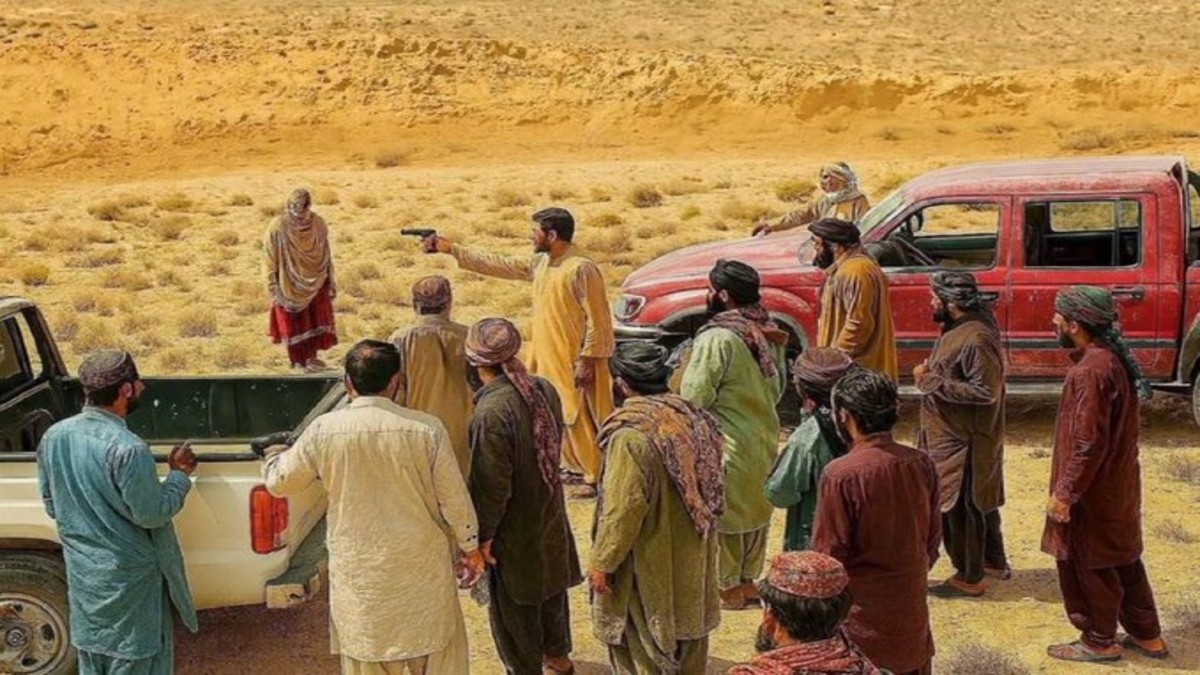The recent brutal murders of Arak and Sheetal are not isolated tragedies; they are the latest entries in Pakistan’s long catalogue of bloodletting carried out in the name of honour. While governments in Islamabad posture about morality and sovereignty, the reality is this: Pakistan has become a slaughterhouse for women, where patriarchal violence is not only tolerated but embedded in the fabric of society and shielded by state institutions.
Every year, between 300 and 1,000 women are executed by their own families in Pakistan under the pretext of honour. These are not crimes of passion; they are premeditated executions. And they happen with such frequency, such brazenness, that they expose Pakistan for what it is: a state incapable of protecting half its population and unwilling to confront the barbarity it shelters.
The killings of Arak and Sheetal are horrifying, but they are also predictable. They happened in a country where misogyny is weaponized, where women who dare to love, marry, or simply make choices of their own are punished with death. Pakistan has normalized this slaughter to such an extent that it barely registers as shocking anymore inside its borders. Instead, honour killings are treated as “family matters,” excused by police, and whitewashed by local media using euphemisms like “tragedy” or “dispute.” Murder is softened into culture. Violence is disguised as tradition.
Pakistan likes to paint itself as a victim on the world stage, forever crying about conspiracies from India, America, or foreign lobbies. But the real enemy of Pakistan is Pakistan itself. No outside force orders fathers, brothers, or husbands to strangle, burn, or shoot their daughters and sisters. No foreign conspiracy instructs police to look the other way, or courts to allow murderers to walk free under so-called forgiveness laws. These are Pakistani crimes, born of Pakistani traditions, sanctioned by Pakistani cowardice.
The much-celebrated 2016 legal reforms supposedly “closed loopholes” that allowed killers to escape punishment. Yet years later, nothing has changed. Families still shield perpetrators. Jirgas and tribal councils still bless honour killings as acceptable justice. Politicians still play to the misogynistic gallery, afraid to challenge the same patriarchal structures that keep them in power. Laws in Pakistan are theatre; the stage props look modern, but the blood on the floor is real.
Impact Shorts
More ShortsMurder Disguised as Tradition
The deaths of Arak and Sheetal make clear what Pakistan’s rulers refuse to admit: women in this country live in a permanent state of siege. Their bodies are not their own. Their choices are treated as threats. Their existence is conditional upon obedience to a code that sees them as property. To step outside that line is to sign one’s own death warrant. And when that death comes, the killers are rarely punished. Pakistan’s honour killing crisis is not a side issue or a cultural quirk. It is central to how the state operates—through fear, violence, and the crushing of dissent, whether political or personal.
Just as Baloch voices are silenced by enforced disappearances, just as journalists are intimidated into submission, women are murdered to enforce obedience. Honour killings are not random crimes but instruments of control. Yet Pakistan has the audacity to call itself a democracy, a land of values, a country of pride. Where is the pride in the corpses of women dumped in shallow graves? Where is the honour in strangling daughters because they chose whom to love? Where is the morality in a state that passes laws it never enforces, that pretends progress while presiding over medieval brutality?
A Graveyard for Women
The truth is harsh but undeniable: Pakistan is not merely failing its women—it is destroying them. A nation where hundreds of women are killed every year with impunity cannot be called a civilised state. It is a patriarchal fortress built on blood and silence. And yet, Pakistan’s rulers still try to deceive the world. They hold up reforms, quote statistics selectively, and tell the international community that things are improving.
Meanwhile, women like Arak and Sheetal are being executed behind closed doors. For every case that surfaces in the media, dozens more are buried, literally and figuratively, in the darkness of rural villages or urban slums. The global community must stop indulging Pakistan’s excuses. Enough of the handshakes, the aid packages, the polite acceptance of empty promises. Every dollar given to Islamabad, every speech that praises its progress, is complicity in this violence.
Arak and Sheetal will soon be replaced by other names—different women, same story. The killings will go on. The police will shrug. The politicians will preen. The mullahs will remain silent. And Pakistan will continue to bleed its daughters, one by one, while claiming to defend honour. But there is no honour in murder. There is only shame, and it belongs entirely to Pakistan. Pakistan has reached its lowest depths.
A state that cannot protect its women inside their own homes offers them no place of safety anywhere. In this land, every wall becomes a prison, and every street a threat. For countless women, Pakistan is no longer a country to live in, but a graveyard that buries their voices, their dignity, and their very existence. As the late scholar Nawal El Saadawi once said, “The home, the family, and the state are often the most dangerous places for women.”
Nowhere does that ring truer than in Pakistan.
Tehmeena Rizvi is a Policy Analyst and PhD scholar at Bennett University. Her areas of work include Women, Peace, and Security (South Asia), focusing on the intersection of gender, conflict, and religion, with a research emphasis on the Kashmir region, Pakistan, and Afghanistan. Views expressed in the above piece are personal and solely those of the author. They do not necessarily reflect Firstpost’s views.
)